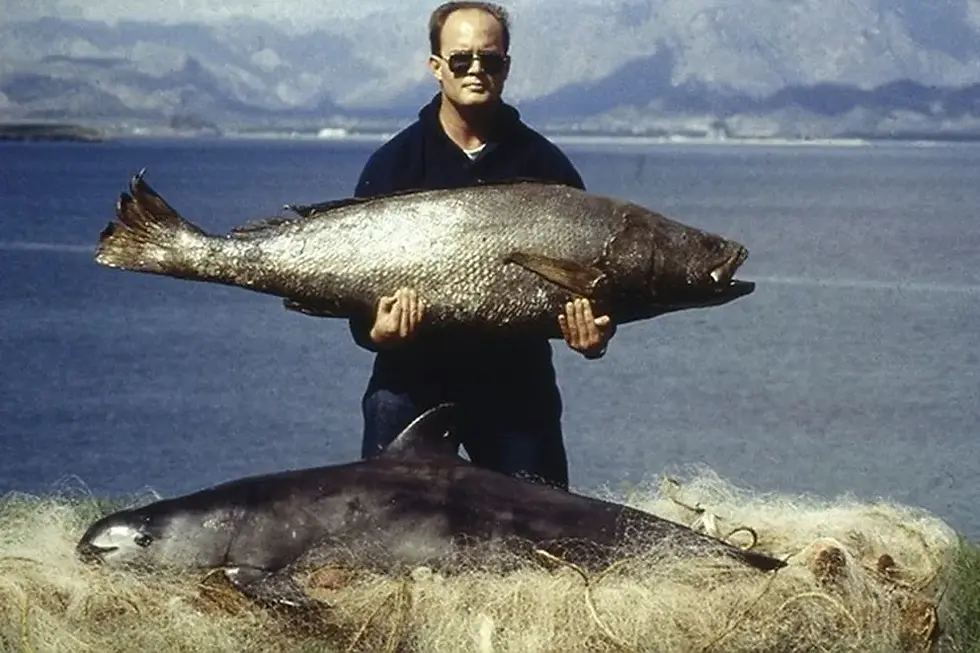DID SIERRA LEONE JUST SELL A PROTECTED RAINFOREST AND BEACH TO CHINA TO BUILD A FISHING PORT?
- ALEX LOCKWOOD

- May 22, 2021
- 3 min read
The Government of Sierra Leone has just sold 250 acres of beach and protected rainforest for $55m [£39M] to China to build an industrial fishing harbour.
But the deal is being called “a catastrophic human and ecological disaster” by conservationists.

Greenpeace Africa condemned the plan, arguing that “fishing communities in West Africa are already experiencing the effects of environmental degradation and the climate crisis.”
The waters around Black Johnson Beach are well populated with fish and support the livelihoods of local fishermen. The Western Area Peninsula national park bordering the beach is home to many endangered species, including the pangolin.
Centralised Fishing
The government says the proposal is to create a harbour to centralise fishing activities. It will provide a place where huge tuna fishing vessels and international trawlers can anchor.
A press release from Minister of Fisheries and Marine Resources Emma Kowa-Jalloh has been criticized by campaigners. They say it is vague and does not reveal the actual agreement between the two countries. The groups are petitioning the government to release the agreement documents between Sierra Leone and China.
Telling the truth?
Kowa-Jalloh defended the deal, saying: “The government of Sierra Leone has been yearning for a Fish Harbour since the early 1970s, but could not actualise it due to the huge amount of money that is required.” She argues it will bring much needed development investment to Sierra Leone.
But according to the Black Johnson Land Owners Group, in 2017 a World Bank analysis specifically ruled out Black Johnson as unsuitable for a harbour.
Fish Meal Plant
This has fuelled local beliefs that the plan is not for a harbour at all. INstead, they think the plan is to create a fish meal production facility. Here, vast quantities of fish are bred in aquaculture and ground down to make fish meal pellets.
This type of production is hugely damaging to the environment. As well as keeping fish in overcrowded and dirty conditions, it discharges toxic chemicals into the ocean. This destroys existing fish breeding grounds and decimates fish stocks for local fishermen.
Destructive Aquaculture
Around a quarter of global fish-catch is used as fish meal to support the growing billion-dollar aquaculture industry. Free-living fish are caught to feed captive fish, so humans can then eat them.
The construction is set to be built on a part of Black Johnson’s beach named ‘Whale Bay’, so called for its abundance of whales and dolphins. Polluting Whale Bay would decimate the habitats of thousands of both land and marine species.
Hurting Sierra Leone
Sierra Leone is among the world’s poorest countries. It ranks 180th out of 187 countries in the Human Development Index. Eleven years of armed conflict had dramatic consequences on the economy and poverty remains widespread. More than 60% of the population live on less than US$1.25 a day.
But local campaigners argue China’s investment in Sierra Leone will not improve the situation. Similar projects in other African countries have been criticized for destroying local economies and communities - and will end up increasing Sierra Leone’s debt.
Human Cost
On top of the environmental impact, there is a huge human cost. Both local food systems and Sierra Leone’s national food security will be jeopardised, as 80% of the country’s protein currently comes from fish.
Residents will be forced from their homes under compulsory purchase orders made by the government ‘in the national interest’. Local fishermen and traders who own land along the beach will be pushed out of jobs. The ecotourism industry will be devastated.
Stealing land
Campaigners have also pointed out that the 13.76bn leone (US$1.3m) compensation put aside to pay landowners and local fishermen is around 30 times smaller than the actual market value of the land.
This is not a local issue. The exploitation of fish stocks in West Africa is an international problem and impacts the planet. It destroys breeding grounds, kills fish and marine mammals, and impoverishes local communities.
How you can help
How can you help the people of Sierra Leone?
Donate to the crowdfunder: HTTPS://WWW.CROWDFUNDER.CO.UK/SAVE-BLACK-JOHNSON-BEACH
Share this post to raise awareness.
Sign the petition now: https://www.change.org/SaveBlackJohnsonBeach
Contact H.E. President Julius Maada Bio and the Sierra Leone government yourself:
State House Contact Form
Address: State Avenue, Freetown, Sierra Leone.
Contact Numbers: +23276277001/+23276758764/+23288269282
Email: info@statehouse.gov.sl
Twitter: @PresidentBio
Contact the First Lady H.E. Fatima Maada Bio
https://firstlady.gov.sl/contact/
Address: 64 Spur Road, Freetown, Sierra Leone
Contact Numbers: +232 303 68273
Twitter: @FirstLadyBio and @OfficeLeone
Wherever you are in the world remember they work for you. Contact your government representatives and urge them to contact H.E. President Julius Maada Bio and the Sierra Leone government on your behalf.
Follow @JohnsonOwners spread the message - use the hashtags:



lol beans promotes joy and creativity, where players face charming stages requiring agility and coordinated teamwork. Every round of the game brings delight and laughter while encouraging strategic problem-solving and adventurous thinking.
The way you presented complex information so simply is remarkable. I admire your ability to convey such detailed information in an accessible way. thorn and balloons
Genuine Leather Jacket women's Professional service and a very user-friendly website. Highly recommended!
Thank you for speaking up to protect the environment and the fishing community. Reading the news makes me feel so sad for the pristine nature being threatened. Sacrificing people's livelihoods and the habitats of rare animals like pangolins is too high a price to pay. After catching up on these heavy news stories, I often choose to play Friday Night Funkin to balance my emotions. This music game is great for relieving stress and giving me more energy to support conservation efforts. Hopefully, the beach will be preserved intact.
virtual assistant services This website is fantastic! The layout is clean, and the information is presented in such a clear and professional way.